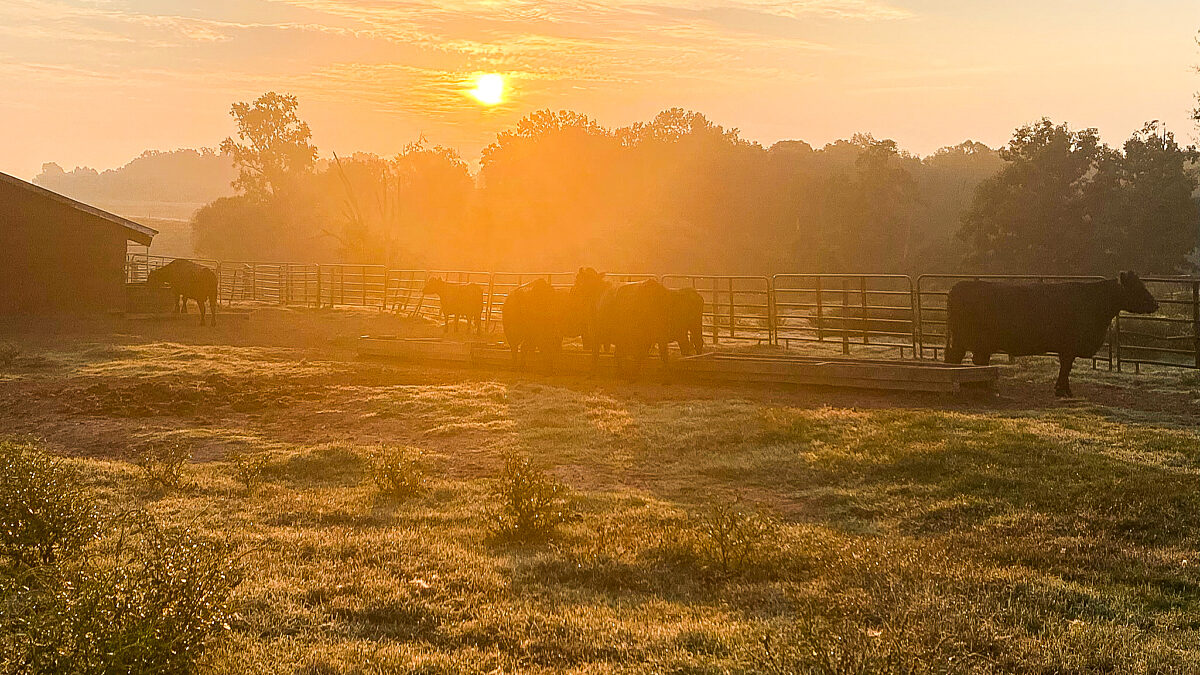Illinois Farmer’s Commitment to County Farm Bureau Spans 39 Years
Erin Anthony
Director, Communications

photo credit: AFBF Photo, Mike Tomko

Illinois corn and soybean grower Jim Koeller learned from his father how important it is for farmers to be involved in organizations that impact their communities and livelihoods.
“You have to have some connection to try to improve your community. I was taught that you’re not trying to do what’s good for just your farm, you’re trying to do what’s good for people in your community,” said Koeller, who farms with his son, stepbrother and nephew along the Mississippi River.
Following in his father’s community-minded footsteps, Koeller became a Pike County Farm Bureau member in 1974 and ran for director in 1979, serving for 39 years. Koeller retired from the board of directors in February 2018. A month before his retirement, Koeller sat down with his friend and colleague Blake Roderick, Pike-Scott County Farm Bureau manager, to discuss his family’s farming history, as well his experiences with Farm Bureau.
Koeller explained that he not only heeded his father’s advice to get involved, he also adopted his on-farm leadership style.
“When I was young, I had strong ideas [about what we should be doing on the farm], and I was allowed to try it out,” Koeller said. If he or his brother were very passionate about something, their father, whether he agreed or not, gave them a chance to at least try.
“What I quickly learned is that once that was [my] decision, and it was not a good decision, I looked around everywhere for someone to blame and I couldn’t blame anyone but myself,” he said. Koeller put a lot of stock in the how those decisions helped him mature and now he uses the same concept with his son and nephew.
“When they feel strongly about something, [I try] to turn over responsibility of the management decisions early on in order for that next generation to really get it figured out,” he said.
Koeller also touched on the many ways in which agriculture has changed, from the dire lows grain farmers experienced in the 1980s to the relative ease with which you can operate modern machinery.
In the past, “you fought the steering wheel all day. Now, I come home, having not done that, feeling a lot better.”
Biotechnology, too, has led to big improvements, cutting way down or even eliminating insecticides and other crop protection products farmers once used to get rid of bugs, weeds and other problems.
Koeller and Roderick, who met in 1981 at an Illinois Farm Bureau meeting, discussed some of the many issues they’ve teamed up to tackle with Farm Bureau. Chief among them is wetlands, the definition of which seemed to elude the federal government for a good long while.
Koeller recalled the federal government doing a wetlands inventory in the mid-1980s, using aerial photos to make determinations. At first, Koeller said, the obviously incorrect wetlands determinations – like sand ditches – were laughable. He and other farmers thought the federal government would respond accordingly when they pointed out the mistake.
“Well, lo and behold, those places did not come off the map,” Koeller said. “A year went by another year went by. We found out it was not easy to get the proper definition of a ‘wetland.’”
When it started to feel more like a land grab, Koeller and other farmers got fired up and mobilized through the county Farm Bureau, ultimately working their way to Washington, D.C. While farmers felt like they had made some progress in more clearly defining what constitutes a wetland, the issue surfaced in a major way with EPA’s 2015 Waters of the U.S. rule, which placed significant and unwarranted restrictions on what farmers could do on their land.
“You’re almost not a farmer anymore. It’s almost like you’re working for the federal government – someone else is making the decisions,” Koeller said of the rule’s impact.
Challenges like WOTUS, which was recently rescinded by the Trump administration, reinforce Koeller’s philosophy on being active and vocal in his farming community.
“If you do not get involved and speak up, someone else is going to make the decision for you,” Koeller warned.
With the American Farm Bureau Federation approaching its centennial, the organization invited StoryCorps to the 2018 Annual Convention in Nashville to capture Farm Bureau members’ unique stories as only StoryCorps can. This article is based on a StoryCorps interview Jim Koeller did with his friend Blake Roderick.
Listen to Jim Koeller and Blake Roderick's StoryCorps conversation.
Trending Topics
VIEW ALL